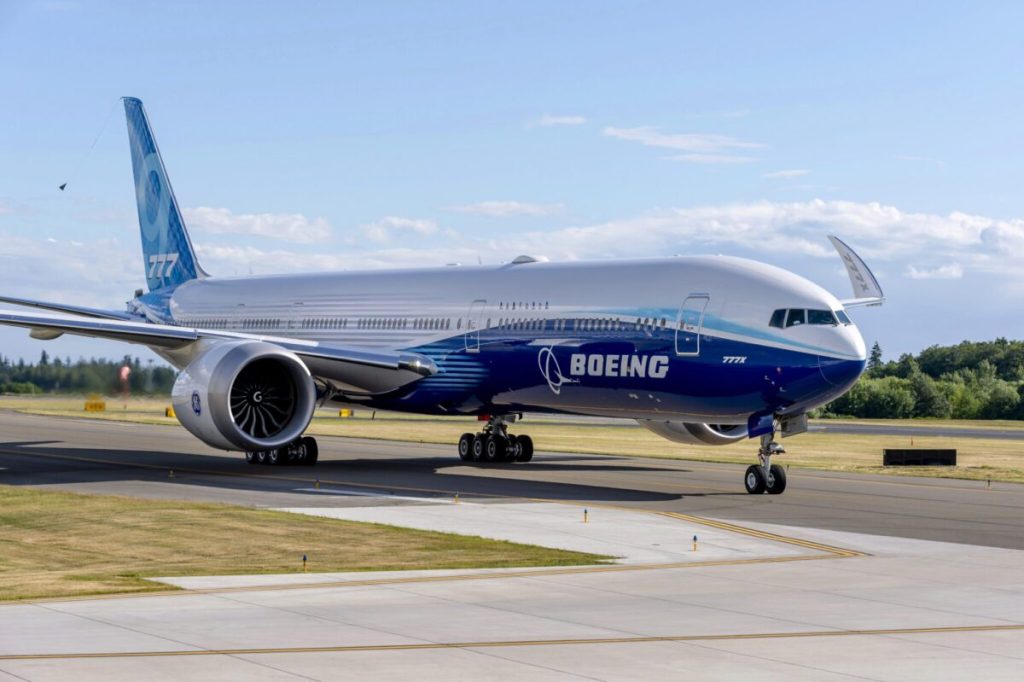Boeing’s machinist union has reached a tentative agreement with the company, ending a month-long strike that halted production. The new proposal includes a 35% raise over four years, annual bonuses, and $7,000 ratification bonuses for employees. However, the offer does not restore pensions, which was a key demand from many union members. The union plans to vote on the new agreement on October 23, with the help of acting Labor Secretary Julie Su in achieving the agreement.
The strike had previously cost Boeing as much as $1 billion a month, leading the company to explore options to improve its liquidity, including selling up to $25 billion in stock or debt and securing a $10 billion credit agreement with banks. Prior to reaching an agreement with the union, Boeing had announced plans to delay the launch of the 777X and lay off 10% of its staff, equivalent to 17,000 employees. Despite the potential ratification of the new contract, Boeing still faces challenges with its aircraft programs, including delays in the delivery of the 777X and structural flaws that had to pause flight testing in August.
Boeing’s chapter of the International Association of Machinists and Aerospace Workers expressed satisfaction with the negotiated proposal to end the strike, noting that it is worthy of consideration by union members. The involvement of acting Labor Secretary Julie Su in facilitating the agreement between the union and Boeing highlights the importance of collaboration in resolving labor disputes. The upcoming vote on the new contract on October 23 will determine if Boeing’s machinist union members accept the terms put forth by the company.
In an effort to address financial losses incurred during the strike and other challenges, Boeing has taken steps to shore up its liquidity through stock or debt sales and securing credit agreements with banks. The company’s decision to delay the launch of the 777X and implement layoffs reflects the broader challenges facing the aerospace industry, including production slowdowns and delays in aircraft development. Despite the potential resolution of the strike, Boeing will need to navigate ongoing issues with its aircraft programs to ensure its long-term success in the market.
Boeing is set to report its third-quarter earnings on October 23, providing insight into the financial impact of the strike and other challenges faced by the company. The outcome of the union vote on the new contract, as well as Boeing’s efforts to address delays in its aircraft programs, will play a significant role in shaping the company’s future trajectory. By addressing labor disputes and focusing on strengthening its financial position, Boeing aims to overcome current challenges and position itself for success in the competitive aerospace industry. The resolution of the strike and ongoing efforts to address underlying issues demonstrate Boeing’s commitment to moving forward in a challenging business environment.


